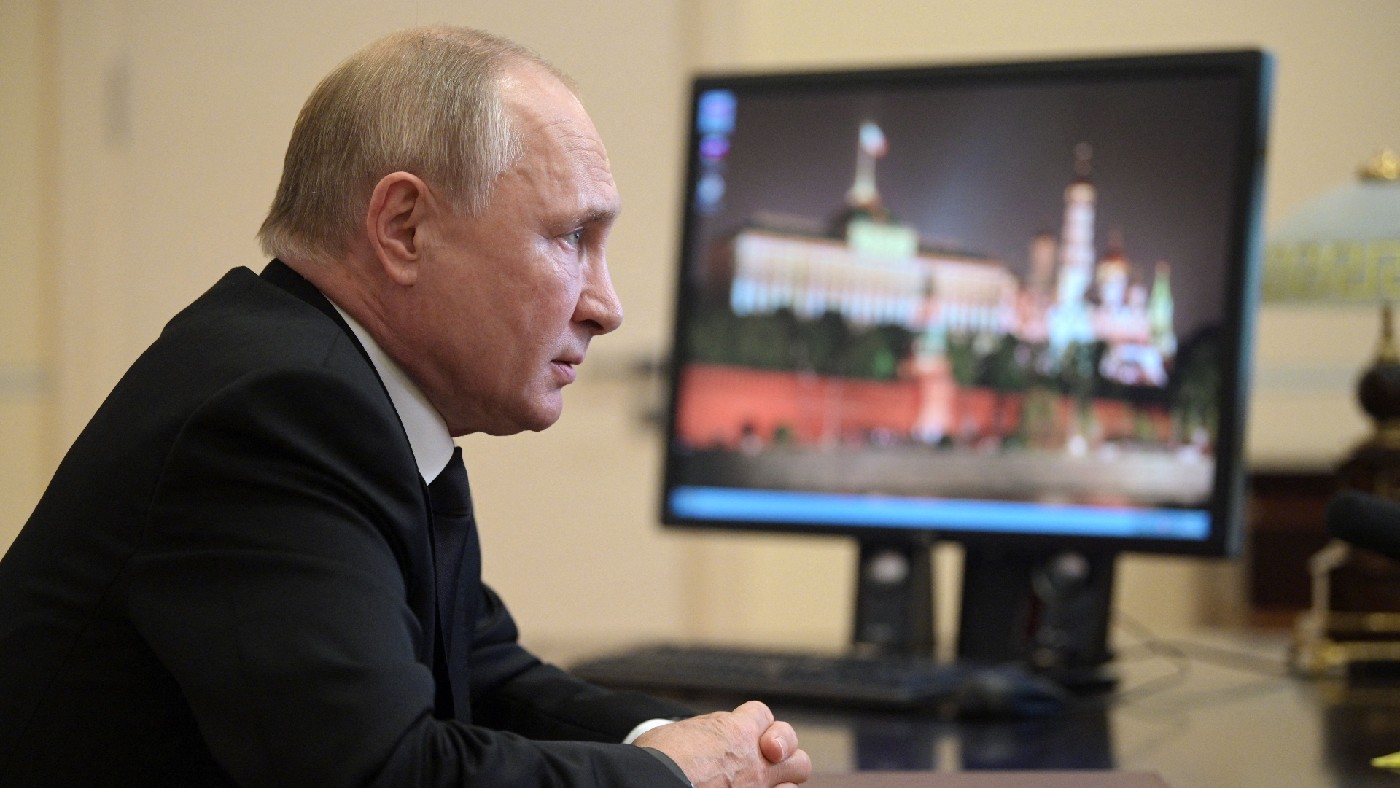Russia’s elections: a triumph for stage-managed ‘democracy’
Kremlin candidates were declared the winners in all of Moscow’s 15 districts

A free daily email with the biggest news stories of the day – and the best features from TheWeek.com
You are now subscribed
Your newsletter sign-up was successful
The Kremlin had ensured that “nothing could go wrong” with last week’s parliamentary elections, said Christian F. Trippe in Deutsche Welle (Bonn). Putin’s Russia is a “managed democracy”, as one of his advisers once put it, and the script for this event had been written long ago.
Hundreds of opposition politicians had been banned from standing. Independent observers were barred and independent media blocked. Search engines were forced to remove results for “smart voting” – a tactical voting strategy designed by the jailed opposition leader Alexei Navalny to find the candidate most likely to defeat the pro-Kremlin United Russia. In St Petersburg, one promising liberal candidate even found himself up against two fake candidates bearing his own name.
Even so, with inflation high and poverty on the rise, it seemed that United Russia might lose ground, said Felix Light in The Moscow Times – until the Kremlin’s new electronic voting system came into play. In Moscow, early leads for opposition candidates began to vanish as “votes” cast online were totted up.
The Week
Escape your echo chamber. Get the facts behind the news, plus analysis from multiple perspectives.

Sign up for The Week's Free Newsletters
From our morning news briefing to a weekly Good News Newsletter, get the best of The Week delivered directly to your inbox.
From our morning news briefing to a weekly Good News Newsletter, get the best of The Week delivered directly to your inbox.
The next day, Kremlin candidates were declared the winners in all of the capital’s 15 districts, clinching United Russia close to 50% of the vote and a two-thirds majority in the Duma, the parliament. The Communists, the second largest party, with around 20% of the vote, refused to recognise the electronic results. In St Petersburg, the cheating was less “hi-tech”. “Observers were dragged out of polling stations,” said The Economist.
Polls suggested that, nationally, United Russia had around 30% support; and in areas where the vote was difficult to rig, such as the Urals and Siberia, the results bore that out. In some, “the Communists actually won”.
But in general, the opposition was effectively managed, said Konstantin Eggert on Echo of Moscow. Kremlin strategists explained why United Russia had “actually defeated everyone” again. The old faces were back, along with a few new faces, such as the “fictitious” New People party, a pro-Putin group set up with Kremlin help, so that the powers that be can say to the urban middle classes: “What are you dissatisfied with? Here are your representatives!”
Ten years ago, Russian society was lively and pluralistic, said Frank Nienhuysen in Süddeutsche Zeitung (Munich). There were protests, “satire was back in vogue”, and newspapers “surprised”. Today “apathy and powerlessness” rule. “Hardly anyone in Russia is still making a fuss about the fact that the election was obviously rigged in so many ways.”
A free daily email with the biggest news stories of the day – and the best features from TheWeek.com
-
 What to know before filing your own taxes for the first time
What to know before filing your own taxes for the first timethe explainer Tackle this financial milestone with confidence
-
 The biggest box office flops of the 21st century
The biggest box office flops of the 21st centuryin depth Unnecessary remakes and turgid, expensive CGI-fests highlight this list of these most notorious box-office losers
-
 The 10 most infamous abductions in modern history
The 10 most infamous abductions in modern historyin depth The taking of Savannah Guthrie’s mother, Nancy, is the latest in a long string of high-profile kidnappings
-
 The fall of the generals: China’s military purge
The fall of the generals: China’s military purgeIn the Spotlight Xi Jinping’s extraordinary removal of senior general proves that no-one is safe from anti-corruption drive that has investigated millions
-
 What happens now that the US-Russia nuclear treaty is expiring?
What happens now that the US-Russia nuclear treaty is expiring?TODAY’S BIG QUESTION Weapons experts worry that the end of the New START treaty marks the beginning of a 21st-century atomic arms race
-
 Epstein files topple law CEO, roil UK government
Epstein files topple law CEO, roil UK governmentSpeed Read Peter Mandelson, Britain’s former ambassador to the US, is caught up in the scandal
-
 Iran and US prepare to meet after skirmishes
Iran and US prepare to meet after skirmishesSpeed Read The incident comes amid heightened tensions in the Middle East
-
 Syria’s Kurds: abandoned by their US ally
Syria’s Kurds: abandoned by their US allyTalking Point Ahmed al-Sharaa’s lightning offensive against Syrian Kurdistan belies his promise to respect the country’s ethnic minorities
-
 Israel retrieves final hostage’s body from Gaza
Israel retrieves final hostage’s body from GazaSpeed Read The 24-year-old police officer was killed during the initial Hamas attack
-
 China’s Xi targets top general in growing purge
China’s Xi targets top general in growing purgeSpeed Read Zhang Youxia is being investigated over ‘grave violations’ of the law
-
 Ukraine, US and Russia: do rare trilateral talks mean peace is possible?
Ukraine, US and Russia: do rare trilateral talks mean peace is possible?Rush to meet signals potential agreement but scepticism of Russian motives remain